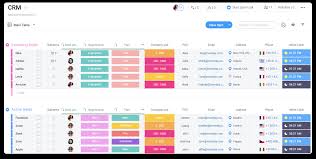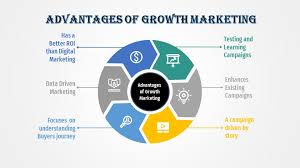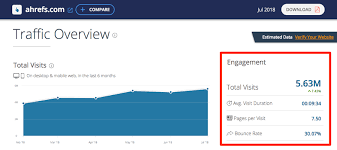The Benefits of Client Management Software
Client management software is a powerful tool that can revolutionise the way businesses interact with their customers. From tracking interactions to managing important data, this software offers a wide range of benefits that can streamline processes and enhance customer relationships.
Efficient Data Organisation
One of the key advantages of client management software is its ability to efficiently organise and store client data. By centralising all information in one place, businesses can easily access details such as contact information, purchase history, and communication logs. This streamlined approach saves time and ensures that employees have the necessary information at their fingertips.
Improved Customer Communication
Client management software enables businesses to maintain consistent and personalised communication with their clients. By tracking interactions and preferences, companies can tailor their messaging to individual needs, leading to stronger relationships and increased customer satisfaction. Automated reminders and notifications also help businesses stay on top of important follow-ups.
Enhanced Task Management
With client management software, businesses can assign tasks, set deadlines, and track progress more effectively. This feature streamlines internal processes and ensures that no important action slips through the cracks. Managers can easily monitor task completion and allocate resources efficiently based on real-time data.
Data Analysis for Informed Decision-Making
Client management software provides valuable insights through data analysis tools. Businesses can track trends, identify opportunities for growth, and make informed decisions based on comprehensive reports generated by the software. This data-driven approach empowers businesses to optimise their strategies and maximise their ROI.
Conclusion
Client management software is a versatile solution that offers numerous benefits for businesses looking to improve customer relationships and streamline operations. By centralising data, enhancing communication, improving task management, and providing valuable insights through data analysis, this software is essential for modern businesses seeking growth and success.
Understanding Client Management Software: Key Questions and Answers
- What is an example of a CRM system?
- What is a client management system?
- What is CRM and CMS?
- How do you build a client management system?
- Which software is best for customer management?
- What is a good client management system?
- What is an example of client management?
What is an example of a CRM system?
A popular example of a Customer Relationship Management (CRM) system is Salesforce. Salesforce is a cloud-based platform that offers a comprehensive suite of tools for managing customer relationships, sales processes, marketing campaigns, and more. It allows businesses to centralise customer data, track interactions, automate tasks, and generate detailed reports for informed decision-making. With its user-friendly interface and scalability, Salesforce is widely used by companies of all sizes across various industries to enhance customer engagement and drive business growth.
What is a client management system?
A client management system, also known as client management software, is a comprehensive tool designed to help businesses effectively manage their interactions and relationships with clients. It serves as a centralised platform where businesses can store and access crucial client information such as contact details, communication history, purchase records, and preferences. By providing a holistic view of each client, a client management system enables businesses to streamline processes, improve communication, enhance customer service, and make data-driven decisions to drive growth and success.
What is CRM and CMS?
Customer Relationship Management (CRM) and Content Management System (CMS) are two distinct but interconnected software solutions that play vital roles in managing business operations. CRM focuses on building and maintaining strong relationships with customers by centralising customer data, tracking interactions, and enabling personalised communication. On the other hand, CMS is a platform for creating, managing, and publishing digital content such as websites, blogs, and online resources. While CRM streamlines customer interactions, CMS empowers businesses to deliver engaging content to their audience effectively. Integrating CRM and CMS can enhance overall customer experience by combining data-driven insights with compelling content delivery strategies.
How do you build a client management system?
Building a client management system involves several key steps to ensure its effectiveness and functionality. Firstly, it is essential to define the specific requirements and objectives of the system, including the type of data to be stored, user access levels, and desired features such as task management and reporting capabilities. Next, a thorough design phase is crucial to create a user-friendly interface and establish seamless navigation within the system. The development stage involves coding the system based on the design specifications, integrating necessary functionalities, and conducting rigorous testing to identify and resolve any issues. Finally, implementation involves deploying the system across relevant departments or teams, providing training for users, and ongoing maintenance to ensure optimal performance and scalability as business needs evolve.
Which software is best for customer management?
When it comes to customer management software, the best choice depends on the specific needs and requirements of each business. There are several popular options available in the market, such as Salesforce, HubSpot CRM, Zoho CRM, and Microsoft Dynamics 365. Each software has its own strengths and features that cater to different industries and business sizes. It is essential for businesses to evaluate their goals, budget, scalability needs, and desired functionalities before selecting the most suitable customer management software for their operations. Conducting thorough research, seeking recommendations from industry experts, and considering factors like ease of use and integration capabilities can help businesses make an informed decision on the best software for their customer management needs.
What is a good client management system?
A good client management system is one that effectively centralises and organises client data, streamlines communication processes, and provides insightful analytics for informed decision-making. It should offer user-friendly interfaces, customisable features to suit specific business needs, and robust security measures to protect sensitive information. A good client management system should also integrate seamlessly with other tools and applications used by the business, facilitating a cohesive workflow and enhancing overall efficiency. Ultimately, a good client management system is one that empowers businesses to build strong customer relationships, improve operational effectiveness, and drive sustainable growth.
What is an example of client management?
An example of client management is a business using client management software to maintain detailed records of customer interactions, such as contact information, purchase history, and communication logs. By centralising all this information in one place, businesses can effectively track and manage their client relationships. This allows for personalised communication, efficient task assignment, and data-driven decision-making to enhance customer satisfaction and drive business growth.





